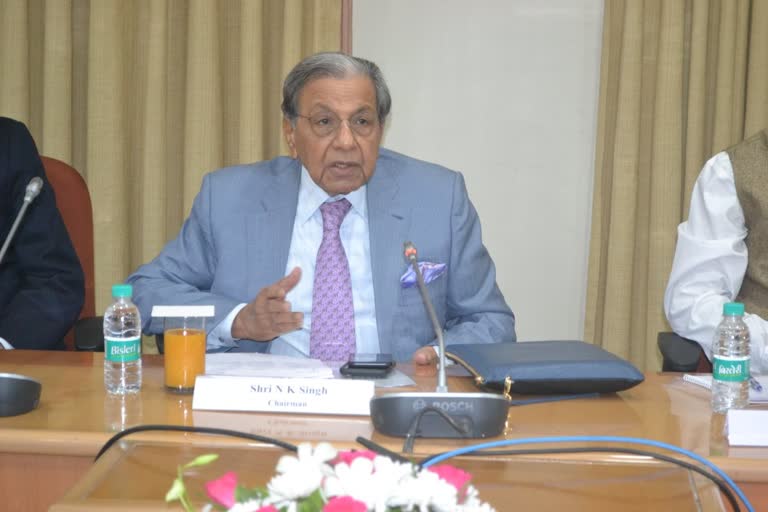New Delhi: Finance Commission Chairman N K Singh on Friday underlined the need for revisiting the Seventh Schedule of the Constitution, which specifies allocation of powers between the Centre and states, in view of changes in technology and national priorities.
The Seventh Schedule has three lists -- Union, state and concurrent. While the Centre can make laws on subjects specified in the Union list, the state governments have jurisdiction over items in the state list.
Both the Centre and states can make laws for subjects in the concurrent list, but the Union's law will prevail in case of conflict.
"...we need to revisit Schedule VII of the Constitution in a more fundamental way," Singh said while speaking at FICCI's Annual Convention and 93rd AGM.
Singh said the Commission on Centre-State Relations, headed by Justice M M Punchhi, had in 2010 recommended that there should be a consultation process between the Union and states via an Interstate Council for legislation on concurrent subjects.
It was of the opinion that the Union should only transfer those subjects into the concurrent list which were central to achieving demonstrable national interest, he said.
"Since then, there have been far-reaching changes both in terms of political stability, technology and emerging new challenges of national priority. We need to consider all these in earnest," Singh said.
"I would suggest the constitution of a high-powered committee of domain experts. They must recognise the contemporary context of technology, global interdependence and changes in our national priorities," he noted.
The national priorities understandably encompass a number of areas where the federal government has taken initiatives, like education, health, electricity and infrastructure, Singh further said.
This high-powered committee could comprise parliamentarians, legal luminaries and experts with domain knowledge, including economists, academicians and policymakers, he said.
Read more: Domestic air travel demand sees continued recovery; rises 19 pc m-o-m in Nov: ICRA
He further said the Centrally Sponsored Schemes (CSS) should be flexible enough to allow states to adapt and innovate.
"We also need a far more credible policy for rationalisation of CSS and Central outlays than have been possible so far... We need to constitute an Empowered Group of domain experts to submit to the finance minister and Prime Minister on modalities of further and deeper rationalisation of these CSS," he said.
Singh noted the total public outlay on these CSS are close to Rs 6-7 lakh crore per annum. The central government alone spends over Rs 3.5 lakhs crore, which is 1.2 per cent of current GDP.
The Finance Commission chairman further said there was a need for continuity on aligning the fiscal consolidation roadmap of the Centre and states in a more harmonious symmetry.
"This is an arduous but inescapable task. A differentiated debt path of states which recognises the present constraints and issues of legacy debt must be handled with sagacity and sensitivity. This is more required in times of adversities like the world is facing now due to the pandemic," he pointed out.
Singh also talked about the need for another forum for ongoing consultative dialogue after the abolition of the Planning Commission.
With the abolition of the Planning Commission, many economists and policymakers have argued about an institutional vacuum, he said, adding while the National Development Council (NDC) is performing an important function, the states have pleaded for a credible institution acting as a link for a policy dialogue with the Centre.
"We need to give serious consideration for a consultative forum for credible policy dialogue between the Centre and the states. The Niti Aayog has emerged as a credible think-tank and their work in the sphere of Centre-state relations needs to be recognised. However, the states are keen to have a different kind of a policy-based consultative forum," he said.
This is an area which too deserves serious consideration of policy makers, Singh said.
(PTI Report)



